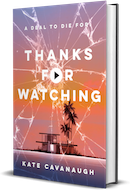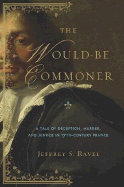Paul Beatty is the author of two novels, Tuff and The White Boy Shuffle, and two books of poetry, Big Bank Take Little Bank and Joker, Joker, Deuce. He is the editor of Hokum: An Anthology of African-American Humor, and his lastest novel, Slumberland, was published in June by Bloomsbury USA. He lives in New York City.
On your nightstand now:
Well, I've never had a nightstand. In fact, I always thought nightstands were movie props that allowed for phones and alarm clocks to be placed at a scientifically determined proximity that prevents the protagonist from ignoring any late night phone call or sleeping through an early morning buzzer.
So, if by nightstand you mean windowsill or toilet tank shelf: Hitchcock-Truffaut: The Definitive Study of Alfred Hitchcock by Francois Truffaut, Stepin Fetchit: The Life and Times of Lincoln Perry, The Idiot and Apex Hides the Hurt by Colson Whitehead.
Favorite books when you were a child:
Catch-22 by Joseph Heller, The Choirboys by Joseph Wambaugh and The Book of Lists.
Your top five authors:
Richard Pryor, George Clinton, Kurt Vonnegut, Yasunari Kawabata and former White House spokesperson Scott McClellan.
Book you've faked reading:
The California Driver Handbook
Book you are an evangelist for:
Oreo by Fran Ross
Books you've bought for the cover:
Self-Portraits by Osamu Dazai, Red Azalea by Anchee Min and any Donald Goines book, sitting on any black sidewalk bookseller's table, outside any subway station where Negroes are likely to enter and exit.
Book that changed your life:
Social Experiments: Methods for Design and Evaluation by Leonard Saxe and Michelle Fine. It's the textbook that made me quit grad school and move to New York.
Favorite line from a book:
"I s'pect I growed. Don't think nobody never made me."--Topsy in Harriet Beecher Stowe's Uncle Tom's Cabin.
or
"Before he could mount a response I blasted him thrice in the chest, started the car, and drove home to watch 'Benny Hill'."--Monster: The Autobiography of an L.A. Gang Member by Sanyika Shakur
or
"I think of Dean Moriarty."--On the Road by Jack Kerouac
Book you most want to read again for the first time:
The Old Man and the Sea, so that I can throw it in the trash after the reading the first paragraph and get back the 25 minutes of my life I wasted reading that sentimental crap.












 The publisher wrote about Eros: "Alexander von Brücken, an ageing millionaire, invites an unknown author into his mansion to record his life story. From there the novel plunges back into Germany's past when Hitler's Third Reich is on the brink of failure. In an air raid shelter, Alexander falls desperately in love with a girl named Sofie. She flees with her family, but she is never able to completely escape from Alexander's grasp. Odd coincidences and fortuitous circumstances find their way into Sofie's life, and Alexander with his wealth and power lurks in the background. Krausser examines the limits of wealth and the limitless power of unrequited love in this novel. Despite the vast geographical and chronological spaces that the story sweeps through, Alexander's obsession with Sofie shines more vividly than all the surrounding elements. With the unknown author narrating this seductive and darkly fascinating story, the reader also wonders if Alexander's perspective and telling of his past have been skewed by years of longing and frustration."
The publisher wrote about Eros: "Alexander von Brücken, an ageing millionaire, invites an unknown author into his mansion to record his life story. From there the novel plunges back into Germany's past when Hitler's Third Reich is on the brink of failure. In an air raid shelter, Alexander falls desperately in love with a girl named Sofie. She flees with her family, but she is never able to completely escape from Alexander's grasp. Odd coincidences and fortuitous circumstances find their way into Sofie's life, and Alexander with his wealth and power lurks in the background. Krausser examines the limits of wealth and the limitless power of unrequited love in this novel. Despite the vast geographical and chronological spaces that the story sweeps through, Alexander's obsession with Sofie shines more vividly than all the surrounding elements. With the unknown author narrating this seductive and darkly fascinating story, the reader also wonders if Alexander's perspective and telling of his past have been skewed by years of longing and frustration." Jeffrey Ravel's engrossing study of French jurisprudence in the reign of Louis XIV starts with a bedraggled man approaching the main house of the small estate of Narbonne in central France. His temporary disarray may have made him look unfamiliar on August 15, 1697, but he was no stranger. He was Louis de la Pivardière, back from the Nine Years War and ready to assume his rightful place as master of the estate.
Jeffrey Ravel's engrossing study of French jurisprudence in the reign of Louis XIV starts with a bedraggled man approaching the main house of the small estate of Narbonne in central France. His temporary disarray may have made him look unfamiliar on August 15, 1697, but he was no stranger. He was Louis de la Pivardière, back from the Nine Years War and ready to assume his rightful place as master of the estate. 